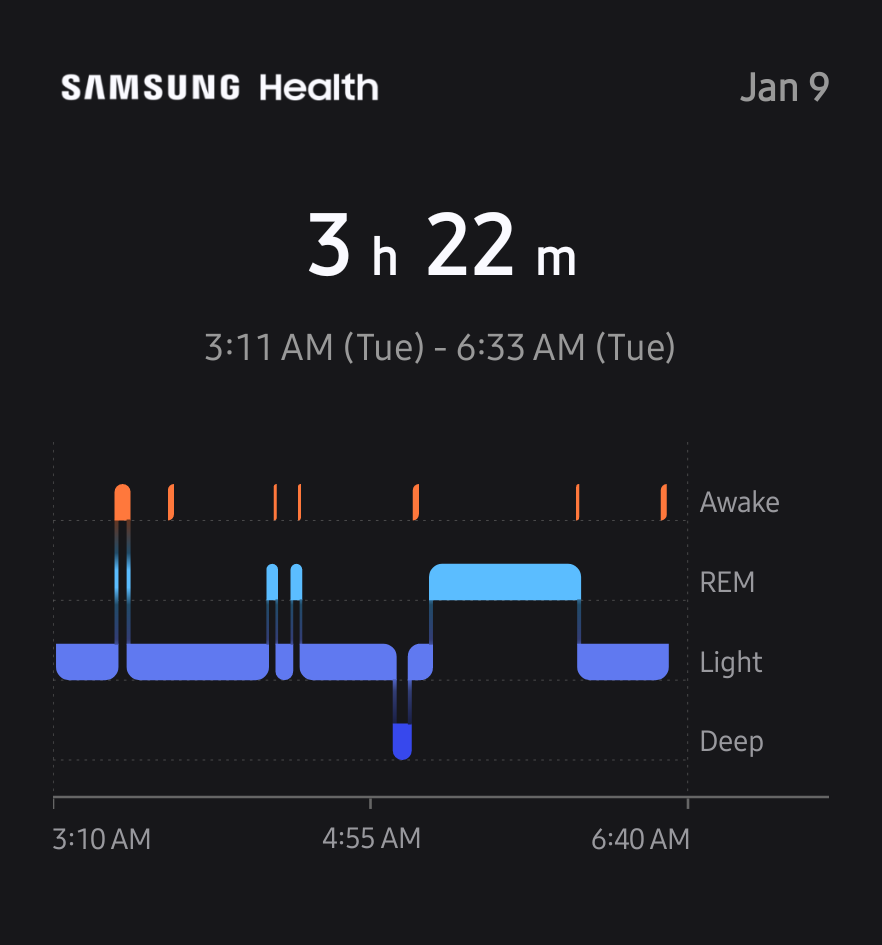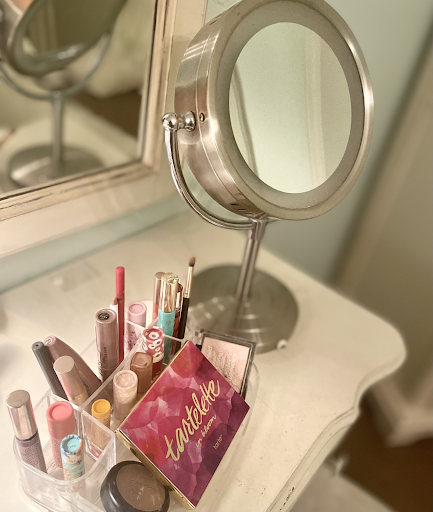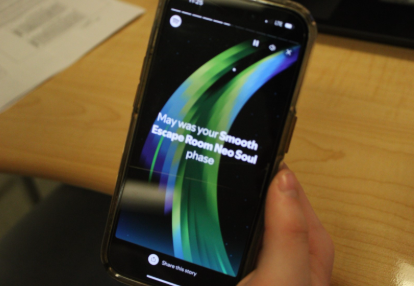Revenge Bedtime Procrastination. It’s a term you’ve likely never heard of before, but once explained you’ll realize just how prevalent it is in our everyday lives.
First coined by Dr. Floor M. Kroese, a Dutch behavioral scientist at RIVM Gedragsunit & Utrecht University, the concept of “bedtime procrastination” is defined as actively delaying the process of sleep without a valid reason—with the awareness that doing so will negatively impact you in the morning.
The term was later refined and further popularized by Chinese American journalist Daphne K. Lee in a tweet she made back in June 2020. (報復性熬夜)
Picture this, it’s 10:45 pm on a school night and you’re about to get ready for bed. You brush your teeth, swap into your pajamas, and cozy up in your blankets. You reach for your phone, possibly just to double-check your alarm for the following day, and you suddenly find yourself reaching for a social media app.
You tell yourself I had so much work today, I’m just going to watch for a few minutes. Three and a half hours later, you find yourself doom-scrolling Instagram reels watching construction fails and the latest drama alerts.
It may sound like a silly example, but people often refuse to sleep earlier and engage in activities they didn’t have time for during the day, as a way of regaining some control over their life.
Why Is Sleep So Important?
Before we can understand how bedtime procrastination affects us during the day, we must first unravel the night-time mysteries of how we sleep.
Brant Holland, a Registered Polysomnographic Technologist (RPSGT) at Fauquier Health, explains how and why sleep is so important to our well-being.
“When you’re laying down to go to sleep, your brain is going to start focusing less on stimulating muscle, to do the tasks we have to do every day, and more on the rejuvenation process, the basis of [our] cells.”
As we ease into our nighttime slumber, our body goes through four main stages of sleep, which are as follows:
- NREM 1: Beginning stages of sleep, if awoken in this stage you’d likely deny having fallen asleep. (5-10% total sleep)
- NREM 2: A light stage of sleep where the body begins to slow down and start the “rest and digest” phase of body rejuvenation. (45-55% total sleep)
- NREM 3: Deepest stage of sleep where muscles fully relax and breathing rate/SpO2 levels tend to drop. (15-25% total sleep)
- REM Sleep: Muscles remain relaxed as in NREM 3, however, brain activity spikes as your eyes dart around seemingly at random. (20-25% total sleep)
Throughout each of these cycles important bodily functions are carried out, thus delaying or even forgoing them can have major consequences on your health.
“If you don’t get [consistent] sleep for a certain number of days you will go somewhat insane,” said Holland.
And the truth of the matter is that he’s right. Lack of sleep is exceptionally dangerous especially when paired with stressful or stimulating activities the following day.
In December of 1963, a 17-year-old boy by the name of Randy Gardner decided to push the limits of sleep science as he attempted to break the record for the longest time spent awake. Gardner lasted from December 27, 1963 to January 8, 1964, an astonishing 11 days 25 minutes without sleep, though his lack of shut-eye wasn’t without its own set of consequences
Researcher John J. Ross from the US Navy Medical Neuropsychiatric Research Unit, who oversaw the experiment, reported that Gardner became uncoordinated, moody, and began experiencing hallucinations just a few days in. By the eleventh day, Gardner began to exhibit signs of ataxia, a condition characterized by poor muscle control usually caused by damage to the cerebellum. According to Ross, he also displayed an “expressionless appearance, [with] slurred speech and lack of intonation.”
Of course, taking this example into account it’s clear how important sleep is to maintaining a healthy relationship with your body.
What Really Happens When You’re Up So Late?
Talking with Holland, I wanted to highlight a term really caught my attention—sleep hygiene. It’s a concept that, on the face of it, seems pretty simple to understand, yet one that I just never really gave much thought to.
We all know that it’s important to maintain your basic dental or bodily hygiene, but the notion of sleep hygiene never entered my mind. The idea is pretty straightforward, sleep hygiene is maintained by going to bed consistently, working on sleep habits, and staying away from distractions at night.
When I asked about people who tend not to sleep on time or who stay up really late maybe doing homework or scrolling, Holland told me that,
“[Many people] have already assumed a poor sleep architecture, they’re creating poor sleep hygiene for themselves and will probably end up having problems like insomnia [or sleep apnea] when they get older. ”
This poor sleep architecture is typically brought about when individuals disregard their natural sleep cycles and push through the night. Poor sleep hygiene is simply the lack of a standard routine and good habits that reinforce healthy sleep.
Holland even recounted his own experience with poor sleep hygiene when he had to work both day and night shifts.
“I couldn’t focus in on some of the other things that need to be focused on because . . . I was so sleep-deprived.”
One thing that a lot of people are lacking in their lives is a solid and consistent sleep schedule. Amidst the demands and trials of everyday life, it can be difficult to find both “me time” and time to take care of your physical well-being. Taking those few strides to make a meaningful Improvement in your sleep schedule can make all the difference in promoting a happier and healthier you.
Strategies To Help Fix Your [Busted] Sleep Schedule
Fixing your sleep schedule isn’t something that happens overnight, it’s a gradual process that can take a few days or weeks depending on what type of sleeper you are. Echoing his earlier statement, Holland mentioned,
“Having a good structure and [keeping] good sleep hygiene is probably the number one key component to managing good sleep.”
One powerful tool that Holland mentioned was to keep a sleep diary. A sleep diary, simply put, is a small notebook or journal that you keep by your bedside and every day record your sleep habits. Every day, right before you go to sleep, record some basic metrics like what time you went to sleep, what you were doing before you went to sleep, and in the morning, what time you woke up and how long you slept for, or any other general habits you’d like to record.
Another thing that’s often overlooked is just how much of an impact your phones have on your sleep patterns. Its prevalence is something that just can’t be overlooked. According to a study by Wendy M. Troxel, Gerald Hunter, and Deborah Scharf, a large majority of teens text during “pre-bedtime” and many teens can send upwards of 25 texts before bed.
Randy Warren, an AP Psychology and AP Law teacher at Patriot High School, challenged her classes to partake in the “alarm clock challenge” over winter break. The challenge simply calls students to swap out their blue-light emitting phones for traditional alarm clocks for their morning wake-up call.
Blue light stimulates the brain into thinking that it’s daytime, which suppresses the production of sleep-inducing neurotransmitters like adenosine and melatonin. This naturally keeps you awake and makes you miss out on your much needed shut-eye!
With all of this said, it’s easy to tell yourself that you’ll get your sleep schedule together someday or that you don’t really feel that tired when you sleep late, but it only takes a few (pretty easy) steps to correct any sleep mishap you may have. If still have persistent issues going or staying asleep make sure to call and seek professional medical attention as sleep is the one component in your life that can make or break your entire day. Give yourself some credit when you sleep on time because it’s what truly makes a restful night turn into an awesome and productive day.








